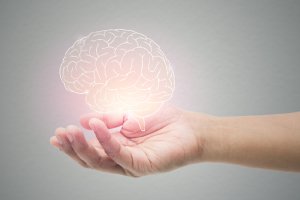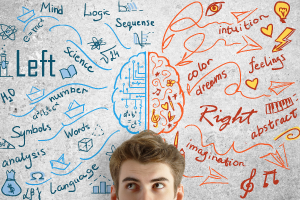

Anxiety, as an emotion, is normal. Worries and fears invariably crop up in daily life. But the mind mindfully contemplates the situation and gets over the concerns. But for some people, this may not be the case. They go through frequent, intense, excessive and persistent worries and fear about everyday situations. This condition is marked as an anxiety disorder and is characterised by anxiety attack symptoms. These signs of anxiety, if ignored, can develop into major health concerns. Read through to understand anxiety disorders.
What is an Anxiety Attack?
An anxiety attack is a sudden and intense attack of fear. It is a reaction to a self-perceived threat and is not related to an actual danger or life-threatening situation. An anxiety attack is short-lived. The anxiety attack symptoms last for about 15 seconds to a few minutes, but interfere with daily activities and impair quality of life.
Types of Anxiety Disorders
An anxiety attack may be related to different places, situations or feelings. They can be categorised under various heads. These include:
1. Agoraphobia
It is a type of anxiety disorder related to fear associated with certain places and situations like getting trapped, embarrassed or helpless.
2. Anxiety Due to Medical Condition
It includes panic and signs of anxiety caused due to diagnoses of a physical health problem.
3. Generalised Anxiety Disorder
Restlessness and panic are triggered due to persistent and excessive worry about activities and events in everyday, routine issues.
4. Panic Disorder
Panic disorder is marked by frequent episodes of intense anxiety, fear, and a threat that peak within minutes. The condition is often accompanied by physical symptoms like shortness of breath, chest pain, heart palpitations, tachycardia, etc. A panic disorder further leads to worrying about such attacks happening again.
5. Post-Traumatic Stress Disorder
This type of panic attack can be serious. It is usually triggered due to thoughts of prior trauma. The anxiety response mimics the stress, fear and helplessness felt when the event occurred.
6. Selective Mutism
This type of anxiety attack is common in children and is marked by a consistent inability to speak in certain situations. This interferes with school, work and social functioning and turns them into introverts.
7. Separation Anxiety Disorder
This is also a childhood anxiety disorder characterised by the excessive stress of getting separated from parents or people in parental roles.
8. Social Anxiety Disorder (Social Phobia)
Social phobia is marked by high anxiety, fear and withdrawal from social situations. It is particularly triggered due to feelings of self-consciousness, embarrassment, and concern about being judged or critically evaluated by others.
9. Specific Phobia
This is a type of panic attack triggered upon exposure to a specific object or situation. As the mind constantly gets into the desire to avoid it, it triggers panic attacks in afflicted people.
10. Substance-Induced Anxiety Disorder
This type of anxiety attack is characterised by anxiety attack symptoms that are a direct result of substance abuse. It is linked to misusing drugs, or medications, or being exposed to a toxic substance and subsequent withdrawal from drugs.
Other Specified and Unspecified Anxiety Disorders
This is the term given to anxiety attacks or phobias that do not exactly fit into the definition of any other anxiety disorders, but display signs of anxiety that are significant enough to be distressing and disruptive.
Common Anxiety Attack Symptoms
Each panic attack can be different. The anxiety attack symptoms can vary from person to person and differ from situation to situation. The most prevalent and indicative signs of an anxiety attack are:
- Feeling nervous, restless and tense
- Sensing impending danger, panic or doom
- A feeling of the heart being squeezed or pressured
- Tachycardia or increased heart rate
- Hyperventilation or fast breathing
- Overwhelming fear
- Chest pain
- Lightheadedness
- Heart palpitations
- Intense sweating
- Trembling
- Nausea
- Impaired hearing
- Irritability
- Feeling weak, tired and exhausted
- Numbness or tingling in feet and hands
- Trouble concentrating
- Poor decision making
- Trouble sleeping
- Experiencing digestive problems
- Unable to control worry
- Constant urge to avoid trigger factors
- Depersonalisation, or the feeling of watching your own self
Causes of Anxiety
It may be impossible to pinpoint a singular cause that triggers an anxiety attack. Such reactions are often a result of weak mental health or are triggered by stressful situations or life events. The common anxiety causes may include:
- Divorce
- Work-related stress or unemployment
- Financial stress
- Caregiving duties
- Grief or loss of a loved one
- Performances and presentations
- Exam stress
- Driving in heavy traffic
- Global pandemic
Self-Care Tips to Manage Anxiety
During an anxiety attack, the body and mind feel out of control. But regular self-care strategies can help you reduce stress and lower the frequency and intensity of anxiety attacks. Good self-management techniques can also cure the condition.
1. Identify Anxiety Triggers
Keep a journal and take note of situations or actions that trigger anxiety symptoms. Practice strategies to develop your mental health in such situations.
2. Adequate Sleep
Sleep induces relaxation. It rejuvenates the mind and body and puts the body into repair mode. Getting eight hours of quality sleep each night is important to reduce anxiety attack symptoms.
3. Stay Physically Active
Regular exercise is a powerful stress buster. It leads to increased secretion of happy hormones, which reduces everyday stress levels.
4. Eat Healthy Foods
Good food and a healthy diet nourish the body and improve mental well-being. Healthy foods reduce stress and anxiety hormones and are crucial for regulating mood.
How to Get Through a Panic Attack?
Here are a few things that can help you get past a panic attack.
1. Focus on Breathing
The first and foremost during a panic attack is to focus on your breathing pattern. The best way to slow down anxiety attack symptoms is to practise deep breathing. Taking longer, deeper breaths and counting to five before exhaling will help you calm down your stress response system.
2. Visualise Something Peaceful
Visualising or picturing something peaceful amidst an anxiety attack will engage the parasympathetic nervous system, a part of the brain that helps the body rest and relax after experiencing a fight-or-flight situation. This will help you bring back your feelings under control.
3. Practice Progressive Muscle Relaxation
Tensing and relaxing your muscles in alternate movements will help you focus on different muscle groups. This will help you feel relaxed and aware of your body movements.
Treatment for Anxiety Disorder
Diagnosis of anxiety disorder is based on psychological evaluation and comparison of symptoms to the criteria in the Diagnostic and Statistical Manual of Mental Disorders-5. The subsequent treatment plan includes psychotherapy that includes talk therapy and psychological counselling. Use of medication may depend upon that type of anxiety disorder and the presence of any other mental or physical health issue.
Conclusion
Anxiousness is a normal emotion. But the emotion transcends into an anxiety attack if one cannot get through it naturally. After the onset of an anxiety attack, the anxiety attack symptoms trigger a cascade of reactions that are nearly impossible to stop. It disrupts the physical and psychological functioning of the body. Although the symptoms are short-lived, severe anxiety symptoms can be disabling for the sufferer. Therefore, it is important to identify signs of anxiety and draft coping strategies to prevent them from happening.
Practise self-care and learn coping methods to get through an anxiety attack without much physical or mental stress. Signs of anxiety, if ignored, can develop into major health concerns. Therefore, it is important to seek medical help in case of frequent and intense anxiety attacks.




